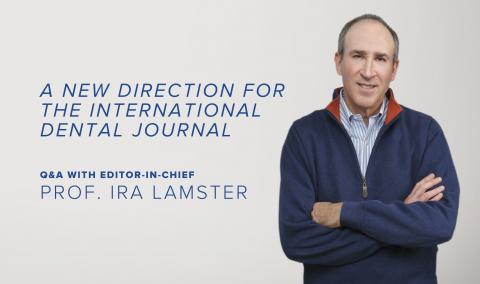Study protocol seeks to measure the impact of Brush Day & Night 21-day toothbrushing programme in schools

An estimated 486 million children around the globe suffer from tooth decay in their primary teeth. Tooth decay is the world's most widespread disease, and toothache is often the first reason why children miss school. In 2005, FDI and Unilever launched Brush Day & Night (BDN) to advocate toothbrushing with a fluoride toothpaste as one of the most important habits for good oral health and general health. The main goal of BDN is to teach schoolchildren and parents about the importance of twice-daily brushing through a 21-day toothbrushing programme in schools. JMIR Research Protocols recently published a study protocol for Phase IV of the 21-day BDN programme that was implemented in Nigeria and Indonesia between 2017 and 2019.
About Brush Day & Night
Since BDN was launched 15 years ago, the project has reached over 136 million people in 40 countries to promote oral health in schools and communities. BDN also helps children become advocates for oral health and spread the message of good oral health to their families and friends. Over the four phases of the project, BDN has also worked with national dental associations to leverage World Oral Health Day and raise awareness about good oral health.
About the study protocol to evaluate Brush Day & Night’s 21-day toothbrushing programme in Indonesian and Nigerian schools
In this new study protocol, the implementation and analysis of Phase IV of the BDN programme is presented, using for the first time sets of intervention and control schools.
The study is a 2-arm superiority randomized controlled trial, run with children aged 6 to 9 years in schools in Indonesia and Nigeria. At baseline, children in both the intervention and control schools answer a questionnaire and have their clinical oral health assessed using the Simplified Oral Hygiene Index (OHI) and Decayed Missing and Filled Teeth index. Children in the intervention schools then take part in a structured 21-day BDN intervention.
Children in the control schools are provided with free toothpaste and toothbrushes but do not receive the 21-day intervention. The questionnaires and OHI assessments are repeated after the 21-day program is completed and again 8 weeks later and then 24 weeks later for all participating children. The study is conducted by the national dental associations of Indonesia and Nigeria and was approved by the ethics committees of both countries.
The authors of this study expect that it will help further demonstrate the effectiveness of the BDN toothbrushing programme, which already showed promising results in a set of articles in 2018, and encourage further replication of the programme to improve the oral health and well-being of children aged 6 to 9 years and their families. They aim to publish the full results in a special edition of the International Dental Journal later this year.

